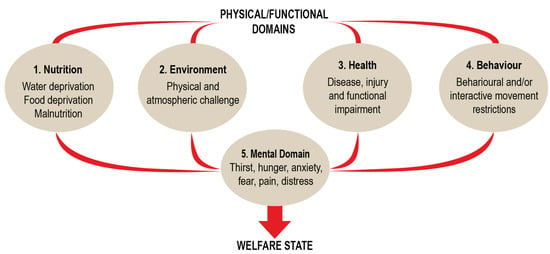Top Facts For Selecting Yeast Infections In Dogs
Wiki Article
What Are The Most Common Medical Issues For Animals?
The species, the age general health and overall condition of the animal's overall health, there are numerous medical issues that can affect animals. Common medical problems that affect animals are:
Parasitic Infections- Fleas ticks, worms and mites can cause problems for animals, leading to a myriad of health problems. Regularly checking for parasites and preventing is essential. Skin problems such as dermatitis, allergies, and hot spots may cause irritation and discomfort to animals.
Ear Infections - Ear infections are common in dogs and cats, particularly those with a sloppy ear, which can cause discomfort and hearing problems.
Dental Health Problems - Dental illnesses like periodontal, gum decay, and tooth decay could affect the overall health of your pet.
Respiratory Infections - Animals can be affected by upper respiratory infections, pneumonia and bronchitis, particularly when they are in stressful or overcrowded settings.
Joint or arthritis problems Certain large breeds as well as older animals can suffer from arthritis. This could cause the pain and reduce mobility.
Obesity. Overweight animals may be at risk for various health problems, including joint diseases, diabetes and heart diseases.
Gastrointestinal Problems- Dietary issues, infections or other underlying problems can lead to diarrhea, vomiting, and digestive issues.
Cancer- Animals and humans are both susceptible to developing cancer. The treatment options consist of chemotherapy, radiation or surgery.
Early detection and prevention of wounds and injuries is essential for the well-being and health of animals. Regularly scheduled veterinary examinations and vaccinations, as well as parasite control and a healthy diet can reduce the risk of many of these common medical issues for animals. A veterinarian should also be contacted as soon as the animal is showing symptoms of illness. Find the Top pet muscle support supplements for site info.

What Are The Most Effective Probiotics, Vitamins And Dog Food Supplements To Feed Them?
The choice of supplements, vitamins and probiotics to give your dog should be based on their specific needs, as well as any advice given by a vet. Certain breeds can benefit from additional supplements, even though it's essential to provide a nutritious and healthy diet for your pet. Here are a few common dog food supplements as well as their potential advantages.
Antioxidants- Antioxidants like vitamin C and vitamin E help protect your dog's cells from oxidative stress and support their immune system. Calcium and Vitamin D are essential for strong bones and teeth particularly for puppies and large breeds.
Fiber Supplements for Dogs with digestive issues like constipation or diarrhea Insoluble fiber supplements may aid in controlling bowel movements.
Green-Lipped Mullet Extract supplement has an extremely high amount of omega-3 fatty oils and helps improve mobility and reduce joint swelling in dogs with arthritis.
Coenzyme (CoQ10): CoQ10 is a potent antioxidant which can help maintain heart health. It also assists in generate energy within cells.
Milk Thistle - This herb can be beneficial for pets with liver issues or are taking liver-related medications.
Prior to giving your dog any food supplements it is essential to speak with your veterinarian. They will be able to provide recommendations that are specifically tailored to your dog's needs. The dosage of supplements can vary according to factors such as the weight of your dog, its age and health. Overdosing can also result in harm. It is important to select supplements made by reputable companies because the quality and safety of the products can vary. Always follow the dosage instructions and look out for any adverse reactions. Talk to your vet in the event that you observe any unusual signs or reactions. A well-balanced and veterinarian-recommended diet is typically the best way to meet your dog's nutritional needs, and supplements should only be used when necessary and under professional guidance. Look over the best pet herbal supplements for dogs with stress for blog examples.

How Common Are Kidney Failure, Skin Allergic Reactions And Yeast Infections In Dogs? What Is The Best Treatment?
There are many ailments that could impact your dog, such as skin allergies and yeast infections. They are different in severity depending on the breed, age, and overall health. This article offers a summary of the conditions as well as their frequency and the possible treatment options.
Prevalence of Kidney Disease/Renal Disease Although it is less prevalent kidney disease is a possibility, it can be a problem for dogs who are older. It could be acute (onset abruptly) or chronic.
Increased thirst and urination may be accompanied by weight loss, lethargy and changes in urine (excessive and decreased urine).
Treatment- Treatment depends on the type of kidney condition. Acute kidney failure requires intensive medical attention. Chronic kidney disease can be managed by dietary changes as well as medication to reduce blood pressure and treatment of kidney function. The condition is progressive therefore it is crucial to identify and manage the condition early.
While these conditions are common for dogs, they don't have a direct impact on all dogs. Additionally, the frequency varies among breeds and between individuals. Regularly scheduled vet visits as well as a balanced diet and preventative steps (such as regular hygiene and flea control) can all help to reduce these risks. You should consult your veterinarian to get an accurate diagnosis of any medical issues that may affect your dog, such a skin allergies or kidney problems. Early intervention can result in greater outcomes and better quality of life for your dog. The very best of the finest pet herbal supplements for small dogs for blog advice.
